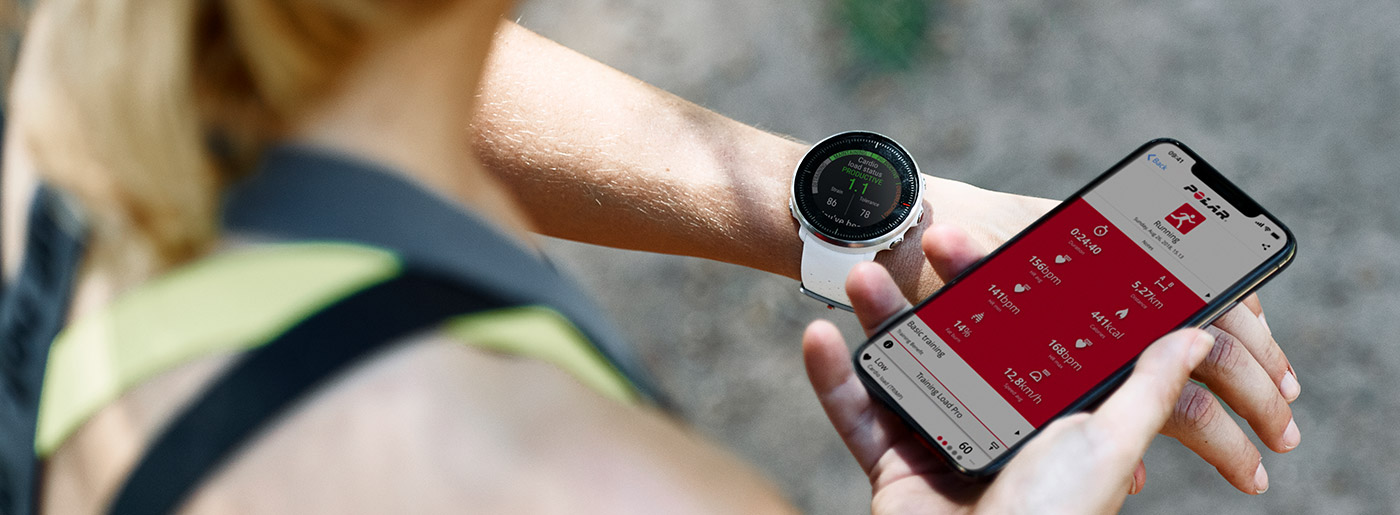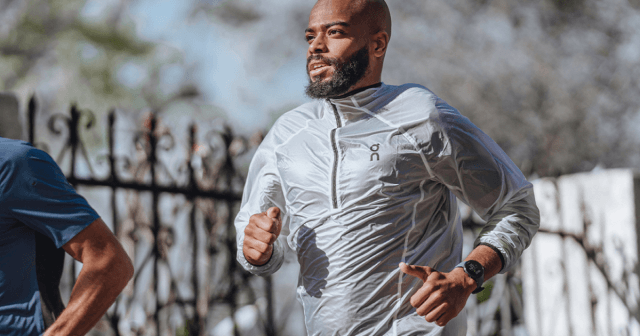Focusing on the time on the clock can be fun – but here are a few other running race goals to consider.
Most often, we train to race and race to beat our personal records. But any seasoned athlete will tell you that not every race will be a PR, so it’s important to set non-time-related goals for some races.
Maybe you’re coming back from an injury or pregnancy, or maybe you’re racing a tune-up before your goal race and want to assess your current fitness.
Whatever your personal circumstances, consider one of these six running race goals – inspired by members of the Polar community – the next time you show up to the start line.
1. Make pacing a priority
A strong finish time is great – but knocking off beautiful, even (or negative!) splits en route to the line is just as satisfying. Mary Blitz, a Polar ambassador from Clearwater, FL, makes it her goal to monitor her mile splits from start to finish, rather than focusing solely on the end game.
(Curious how to make a negative split happen? Try these three workouts to train you to run the second half of a race faster than the first.) Use your watch to stay on pace – and to avoid going out too fast.
2. Tune in to your body
So often the starting gun sounds and your adrenaline takes over – at least for a while. It’s common to get distracted, either by the crowds or your music and to tune out instead of tuning in. If you normally race with music, consider ditching it so you can really pay attention to the signals your body is giving.
If you’re normally hyper-focused on the screaming fans along the course, try to keep your eyes set in front of you instead of on the sidelines.
“I set running race goals for myself like paying attention to my breathing rhythm during the swim, my cadence and power on the bike, and the quality of my run,” says triathlete Jeff Boyer, a Polar ambassador from Tuckahoe, NY. Take note of how your body feels, and push it accordingly.
To stay focused, triathlete and Polar ambassador Chris McCaffrey hones in on his heart rate feedback. “I look to keep sections of a race within a heart rate zone that will allow me not to overdo it too soon,” he says. “Ensuring I don’t push too hard on the early sections helps me get to the finish line.”
3. Get comfortable getting uncomfortable
Sure, the last few miles or meters of a race are almost always uncomfortable. As the body becomes fatigued, each step feels a little tougher than the one before. But that’s often where growth and progress happen.
“If I’m uncomfortable, it means I’m learning, stretching, and growing,” says Steve Williams, a longtime Polar Ambassador, and ultramarathoner from North Carolina.
As you power toward the finish, your legs and lungs may be burning and your brain may be telling you to give up – but that’s the time to push. The more comfortable you can get with being uncomfortable – physically and mentally – the stronger you’ll get.
4. Test your fueling strategy
A non-goal race is a great time to test out fueling and hydrating options.
“I like to test my nutrition to make my running more efficient come race day,” says Tambra Means, a runner, group fitness instructor, and Polar ambassador from Tallahassee, FL.
The more you can perfect your pre-race and mid-race calorie intake, the more prepared you’ll be when it’s time to secure a PR.
5. Help someone else nab a PR
Not in peak physical condition to run your own personal best? Find a friend or family member who could benefit from your pacing skills.
“Sometimes I’ll sign up to race with friends or family members who are just starting out,” says triathlete Brian Manners, a Polar ambassador from Robbinsville, NJ. “Time running or riding with them is always better than a personal best.” (Just make sure you can keep up!)
6. Crush the competition – whoever that may be
Beating the competition doesn’t necessarily mean placing top-three overall. It might mean securing a spot in your age group, or it may mean picking a person a few meters ahead and passing him or her with a solid finishing kick.
“My goal is always to beat the competition, regardless of time,” says triathlete Vladimir Aronsky, a Polar ambassador from Long Island.
Even if you’re on par to run your slowest race of the season, find someone to motivate you, and then set out to leave that person in the dust. Not interested in beating fellow racers? Consider yourself the competition.
If you liked this post, don’t forget to share so that others can find it, too.
Or give it a thumbs up!
I like this article
Please note that the information provided in the Polar Blog articles cannot replace individual advice from health professionals. Please consult your physician before starting a new fitness program.





